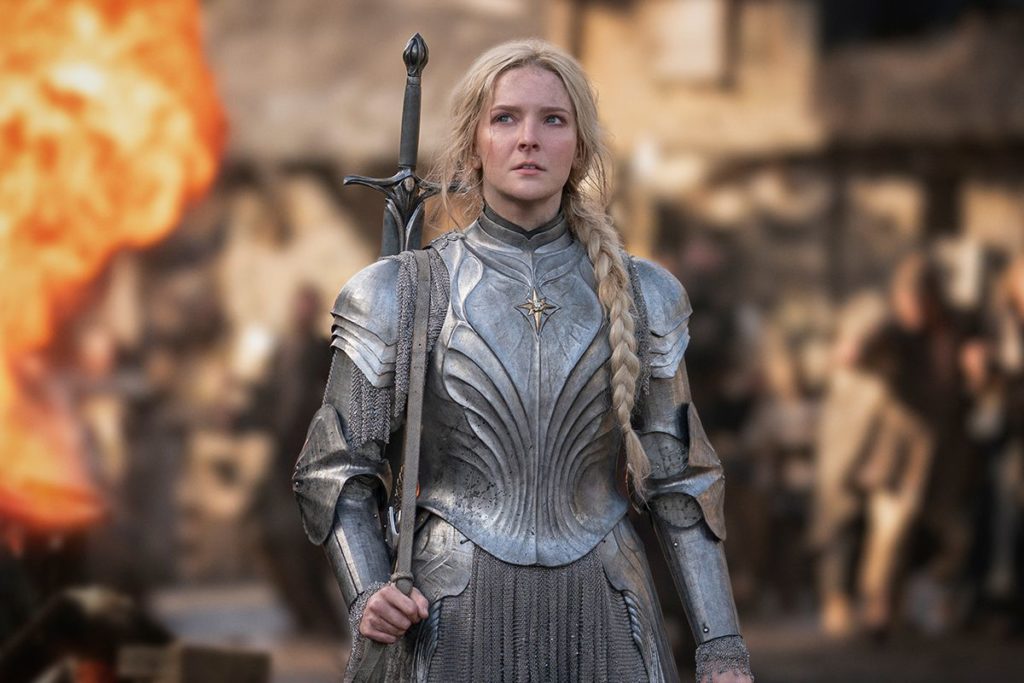When did fantasy shows start to climb the charts? Was it when Game of Thrones (GoT) shattered the records of TV history? Or was it when Henry Cavill signed to play the lead for The Witcher? Or better when Amazon made headlines with the announcement that they were making a TV adaptation of The Lord of The Rings? At whichever point that might have occurred, one thing is sure. Fantasy is well-entrenched, and it is veering towards supremacy.
It makes sense that viewers wait with bated breath for fantasy shows now. Gone are the days when people used to wait impatiently before their TV sets to unravel the tales of Westeros every Sunday. With the much speculated (and even disappointing to some viewers) finale, GoT left the TV landscape almost three years ago. To press into the chasm created by the show’s conclusion, viewers now lean into fantasy shows much more than they used to.
In terms of books, the fantasy genre is mighty. Ever since Mary Shelley wrote Frankenstein, the blend of otherworldly power and reality has been deemed as a captivating category to write on. After that, the genre just kept blossoming. Books such as The Wizard of Oz and The Lord of the Rings continued to seize readers’ imaginations and were hailed as some of the greatest works ever created. In 2001, the emergence of two lucrative franchises—Lord of the Rings: The Fellowship of the Ring and Harry Potter and the Sorcerer’s Stone—redefined the high fantasy genre for the film industry.
What is the distinctive feature of fantasy fans? They have read or at least watched the Lord of the Rings trilogy, or they are versed in Game of Thrones, an adaptation of George R. R. Martin’s ‘A Song of Ice and Fire’ series. This is partly because the fandom heavily overlaps between GoT (Game of Thrones) and LOTR (Lord of the Rings).
Even two decades ago, filmmakers didn’t exactly keep the adult audience in mind while making extravagant fantasy movies. For example, the children marveled over the Harry Potter franchise when it was first released. Given its worldwide fandom, The Lord of the Rings primarily appealed to young people. However, GoT changed the affiliation between the young and the fantasy.
Viewers of all ages are hooked into the genre now
It’s true, LOTR came first, but the oomph of a movie is shorter-lived than that of a TV show. Fantasy is the outcome of the utmost imagination and inspiration of mythology, folklore, and often scientific hypotheses. GoT spell-bonded the audience for eight seasons. This time the target audience was encyclopedic.
After Game of Thrones became limitlessly expansive, people (especially the adult viewers) finally started to see the appeal and complexity of fantasy.
Yes, this show had icy cold monsters and fire-breathing dragons, but it also had characters with a complex worldview. It had grittier realities of human life and meticulous details that, altogether, resembled realism, if nothing more.
In one of 2020’s reviews, it was shown that the conclusion of this series cost its network (HBO) half of its adult viewers (ages 19–50). Many creators and studios have tried to step into the void and reclaim this lost audience. Since then, every streaming network started to desire its own flagship fantasy phenomenon. Show-makers started snowballing TV adaptations of fantasy and science fiction novels.
Not a Risky Business Anymore
Before GoT, it was impossible to think that showrunners would pick a fantasy series as their ambitious project. But now, fantasy projects are perceived to be far-reaching. They come with an expensive budget and they compete with the parade of Hollywood movies. Now, streaming platforms are swelling with fantasy projects of all kinds.
Amazon has plans to claim its own throne
Amazon has dominated the conversation since 2021 with the TV adaptation of the well-known fantasy series by Robert Jordan’s The Wheel of Time. The series centers on Moiraine (Rosamund Pike), a member of a female sorcerer clan, who leads a group of young people on an epic quest to discover which of them is the descendent of the Dragon Reborn, a creature that will either rescue or destroy the world with sinister forces. People often compare the show with Game of Thrones because of its massive cast and intricate plot. The fantasy saga became an immediate hit after the first season had come out. It garnered favorable responses from both the critics and the audience.
Earlier in 2021, Amazon Prime Studios announced a release date for The Lord of The Rings: The Ring of Power. The prequel will consist of storylines preceding both The Hobbit and LOTR. The show is set for a mid-2022 release and is one of the highly anticipated shows of the year.
The audience wholeheartedly tossed a coin to The Witcher
The Witcher is undoubtedly Netflix’s most successful adaptation so far. The show is the precedent for the classic fantasy genre. The dark and occult Polish novel turned into a hit game and eventually became a show. The series centers on Geralt of Rivia (Henry Cavill), known as the Witcher, a yellow-eyed mutant who fights monsters in a medieval, magical world that siphons heavily from European folklore of all origins. After the premiere of season 2 last month, The Witcher became one of the most-watched shows on Netflix so far.
House of The Dragon might be the biggest crowd-puller of 2022
Much to GoT fans’ delight, a prequel is in the making, known as House of the Dragon. The show is undoubtedly one of the most hotly-awaited TV shows this year. Based on the Fire and Blood novel by George R. R. Martin, the show will depict the events of the Targaryen civil war, also known as the ‘Dance of the Dragons’, about 300 years before the events of Game of Thrones.
